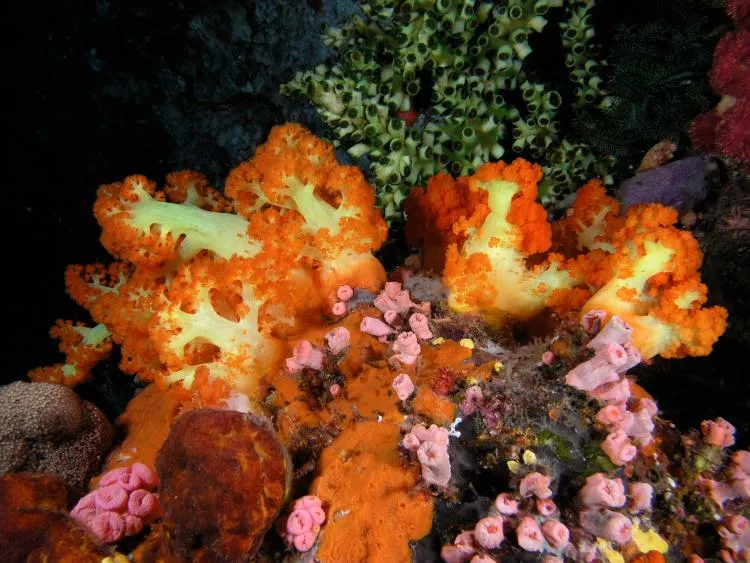Coral reef biodiversity predicted to shuffle, not decline
New research reveals that the species which dominate experimental coral reef communities shift due to climate change, but the total biodiversity does not decline.
Rather than causing a collapse of biodiversity, the dual stressors of ocean warming and acidification could instead lead to significant changes in the relative abundance of species, resulting in a shuffling of coral reef community structure, according to a new study by researchers from University of Hawai'i.
Sprawling coral reefs are complex ecosystems that are teeming with life and most of this biodiversity consists of tiny organisms living deep within the three-dimensional reef matrix.
Cryptobiota
“The tiny organisms living in the reef structure are known as the cryptobiota, which is analogous to the insects in a rainforest,” said Molly Timmers, lead author of the study. “They play essential roles in reef processes such as nutrient cycling, cementation, and food web dynamics – they are an important diet of many of the fishes and invertebrates that make coral reef ecosystems so dynamic.”
Despite their critical importance cryptobiota are often overlooked in climate change research as they are challenging to study in situ over longer time spans. To assess the responses of cryptobiota to future ocean warming and acidification Timmers and colleagues came up with setting up some mesocosms (outdoor experimental systems that examines the natural environment under controlled conditions—ed.).
Settlement plates were placed in experimental flow-through tanks which received unfiltered seawater from a nearby reef slope and were treated to simulate predicted end-of-the-century conditions. Then they were left for two years after which the team examined the organisms that had developed.
Composition differed
While the total number of species did not change between the present-day and the combined future ocean conditioned treatments, the study results revealed that the composition of the coral reef community differed substantially between the treatments.




























